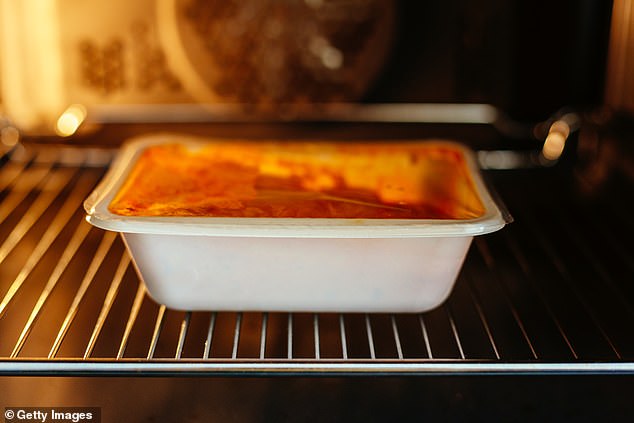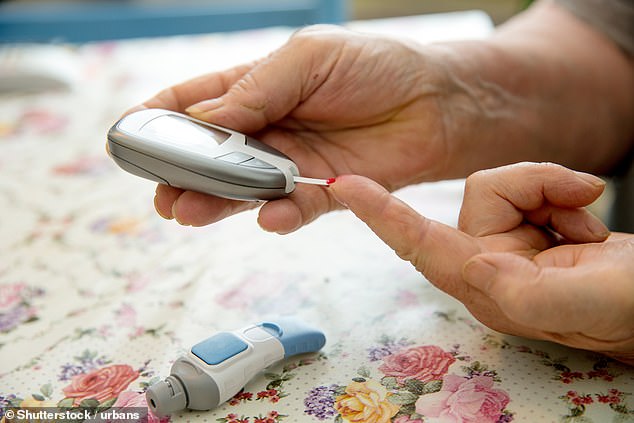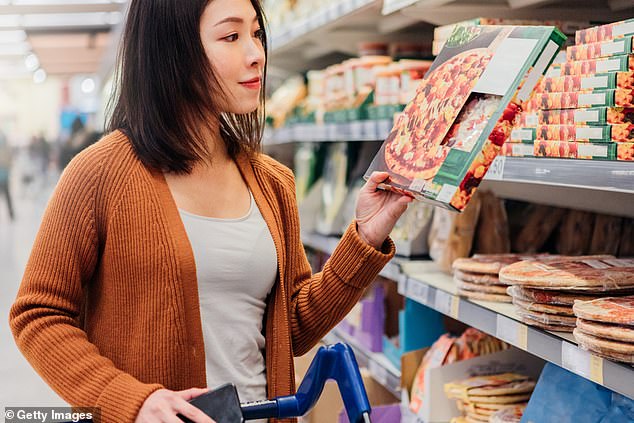How an occasional convenience meal increases the risk of type 2 diabetes by almost a fifth, research shows
A study found that increasing the intake of ultra-processed foods by just 10 percent increases the risk of developing type 2 diabetes by as much as one-sixth.
However, the researchers also found that the risk can be reduced by consuming different types of processed foods.
The research, which was carried out in collaboration with University College London (UCL), the University of Cambridge and Imperial College London, found that every 10 percent increase in the amount of ultra-processed foods (UPF) in a person’s diet was linked to a 17 percent increase in the risk of type 2 diabetes. However, this risk appeared to be reduced by eating ‘less processed’ foods.
Samuel Dicken, lead author of the study, which was published in The Lancet Regional Health – Europe, said: ‘Every 10 per cent increase in UPF in the diet significantly increases the risk of developing type 2 diabetes.
‘Most studies to date have focused only on UPF as a whole, but we also suspect that there are different risks associated with different types of UPF. Furthermore, the risks of other processing groups have not yet been properly investigated.’
Increasing your intake of ultra-processed foods by just 10 percent increases your risk of developing type 2 diabetes by as much as a sixth. (Stock photo)

The UPF groups at highest risk were found to be savoury snacks, ready-made meals, animal products such as processed meat, and sugar- or artificially sweetened beverages. (Stock photo)

Pictured is Samuel Dicken, lead author of the study, which was published in The Lancet Regional Health – Europe

Every 10 percent increase in the amount of ultra-processed foods (UPF) in a person’s diet was associated with a 17 percent increase in the risk of type 2 diabetes. (Stock photo)

The exact causes of the link between UPF and type 2 diabetes have not been confirmed. (Stock photo)

The degree of processing of foods is usually assessed using the Nova classification. (Stock photo)
The highest risk UPF groups were found to be savoury snacks, ready-made meals, animal products such as processed meat, and sugar- or artificially sweetened beverages.
Bread and grains were considered less dangerous.
The degree of processing of foods is usually assessed using the Nova classification, which divides foods into four groups: unprocessed or minimally processed foods, such as eggs, milk and fruit; processed culinary ingredients, such as salt, butter and oil; processed foods such as canned fish, beer and cheese; and highly processed foods, such as ready-made/prepared meals, savoury snacks, sweets and desserts.
Mr Dicken said: ‘Our analysis goes one step further than previous studies, by looking at all four processing groups in the Nova classification to measure the impact on the risk of type 2 diabetes when we replace UPF with less processed foods.’ He added: ‘The good news is that replacing UPF with less processed foods was associated with a lower risk of type 2 diabetes.’
The study analyzed 300,000 people in eight European countries over a ten-year period.
The exact cause of the link between UPF and type 2 diabetes has not been confirmed, but multiple factors are thought to play a role, including overconsumption and weight gain.
